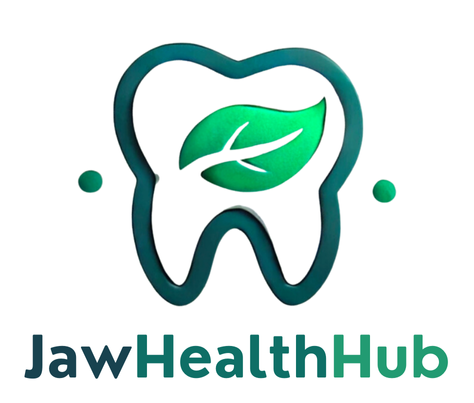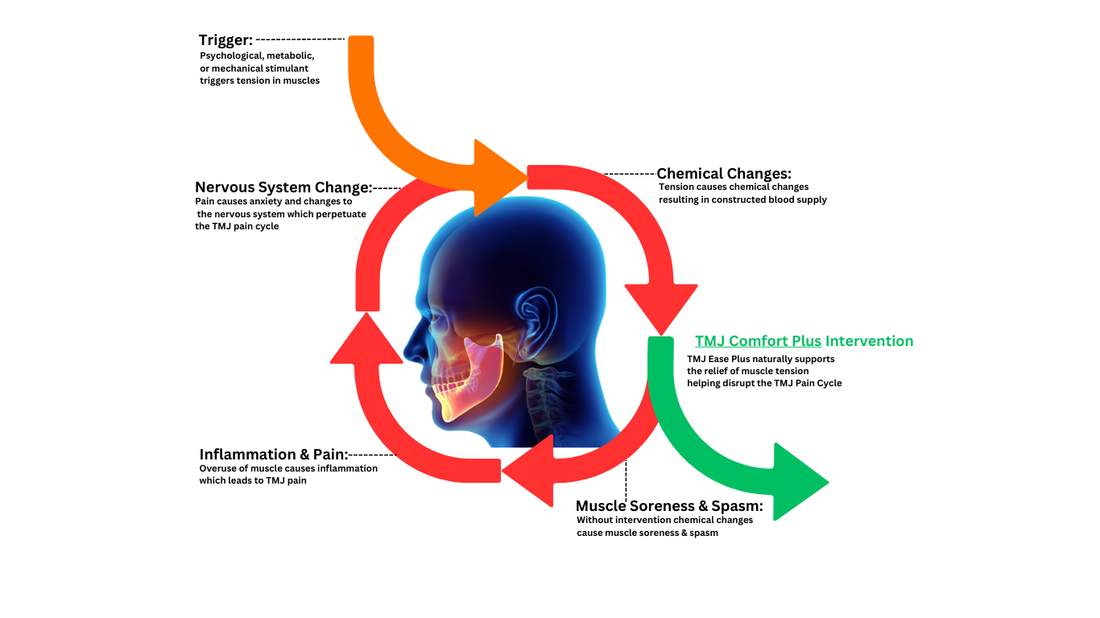What Is TMJ Pain?
TMJ stands for temporomandibular joint, the hinge that connects your jawbone to your skull. This joint is essential for speaking, chewing, and swallowing.
When the TMJ becomes inflamed or strained, it can cause significant discomfort, commonly referred to as TMJ disorder (or TMD).
- Symptoms of TMJ pain can include:
- Jaw soreness or stiffness
- Clicking or popping sounds when moving the jaw
- Difficulty opening or closing the mouth fully
- Pain radiating into the ears, neck, or face
- Headaches or migraines associated with jaw tension
What Are the Main Causes of TMJ Pain?
Several factors can contribute to the development of TMJ pain. The most common causes include:
1. Stress and Muscle Tension
Chronic stress often leads to jaw clenching or teeth grinding (a condition known as bruxism). This sustained muscle tension puts strain on the TMJ, leading to inflammation, soreness, and long-term joint dysfunction.
Clinical Insight:
Studies show that psychological stress is one of the leading contributors to muscle-driven TMJ pain.
2. Jaw Injury or Trauma
Accidents, falls, or direct blows to the jaw can injure the temporomandibular joint or the muscles around it. Even minor trauma can disrupt the normal function of the TMJ over time.
3. Poor Jaw Alignment
An uneven bite (malocclusion) or misaligned jaw structure can place excess stress on the TMJ, resulting in abnormal wear and tear on the joint.
4. Arthritis and Inflammation
Both osteoarthritis and rheumatoid arthritis can affect the TMJ, leading to joint degeneration, inflammation, and pain.
5. Repetitive Movements or Overuse
Habits like frequent gum chewing, nail biting, or excessive talking can strain the TMJ muscles over time, causing irritation and discomfort.
Breaking the TMJ Pain Cycle
Once TMJ pain starts, it often perpetuates itself through a vicious cycle:
- Trigger (stress, trauma, or misalignment) →
- Chemical changes in the muscles →
- Soreness, spasm, and inflammation →
- Central nervous system sensitization, making the area even more prone to pain.
Addressing the root cause early is essential to preventing the cycle from escalating.
Natural Solutions for Managing TMJ Pain
Many individuals seek long-term TMJ relief without relying on daily NSAIDs or prescription medications, which can carry risks with prolonged use. Natural approaches focus on calming the muscles, reducing inflammation, and supporting healthy jaw function.
Recommended strategies include:
- Stress management techniques (meditation, physical therapy, breathing exercises)
- Gentle jaw exercises to promote mobility
- Soft food diets during flare-ups
- Natural muscle relaxants and anti-inflammatories
One promising option is incorporating clinically studied herbal supplements that support relaxation and calm muscular tension.
Support Jaw Muscle Relaxation Naturally
At JawHealthHub, we developed TMJ ComfortPlus to help disrupt the TMJ pain cycle at its root.
Our supplement combines natural ingredients — including Valerian Root, Chamomile, Passionflower, and Lemon Balm — to promote relaxation, ease muscle tension, and support lasting jaw comfort.
If you're looking for a safe, natural way to help manage the causes of TMJ pain, learn more about TMJ ComfortPlus here.
Conclusion
Understanding the causes of TMJ pain empowers you to take proactive steps toward lasting relief. By addressing muscle tension, managing stress, and supporting your body’s natural healing processes, you can break free from the cycle of jaw pain — and get back to living comfortably.

